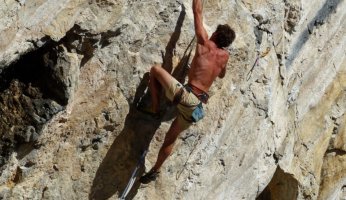Safety Tips for Camping Alone
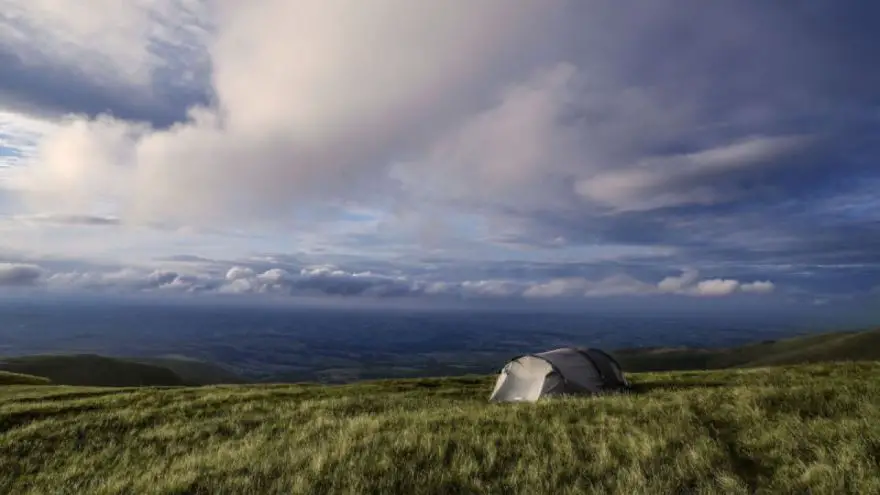 Safety Tips for Camping Alone
gearweare.net
Safety Tips for Camping Alone
gearweare.net
Heading into the backcountry without a partner to watch your back is far more dangerous. If something goes wrong and you get hurt, there is no one there to help walk you back to civilization or to run ahead for help. Those wanting to camp solo therefore need to exercise more caution, taking actions to mitigate the potential of injury and other hazards.
Despite the increased risk, setting out on a solo camping trip is absolutely worth it. The peace and solitude of being in the wilderness by oneself cannot be matched. Without any other distractions, you will be able to fully engage with nature, intimately connecting with the world around you. Camping alone is a valuable experience that cannot be duplicated through any other activity. The exposure that comes with being solo needs to be accounted for though, and all possible mistakes should be evaluated and accounted for before you set out. Follow these steps to ensure you are prepared for your solo camping trip, and to maximize your peace of mind (and fun) throughout the ensuing adventure.
Table of Contents
Be Prepared
There are a few different ways that you should be prepared before setting out on a camping trip on your own. Firstly, don’t go camping by yourself if you are new to camping. Experience with how to use your gear, what to do in different backcountry situations, and what items are necessary vs. superfluous are best learned through trial and error over time. Having camping partners to teach you these things is crucial to developing proper knowledge, and to staying save as you hone your camping skills. Only those with extensive camping experience should even think about heading out solo.
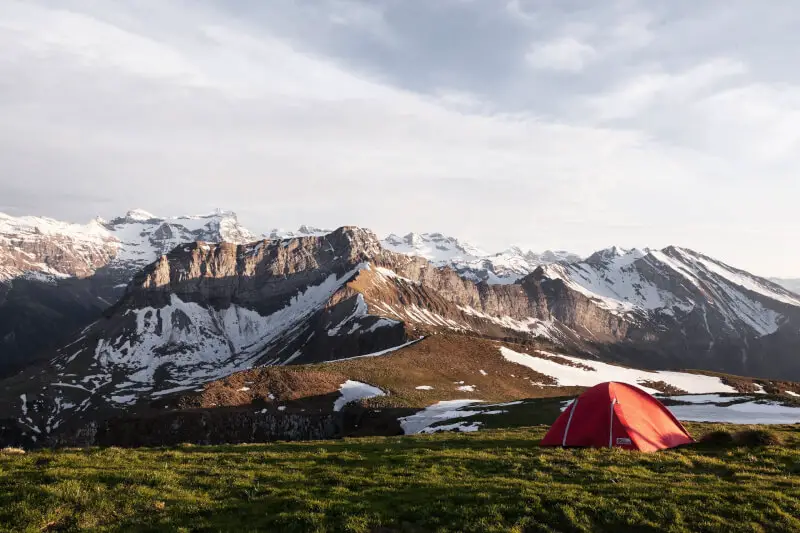
Another important piece to being prepared is to make sure that you know how to use all your camping gear before setting out. Practice putting your tent up, turning your stove on, and using your water filter at home to work out any kinks in your knowledge. To minimize risks, I recommend going through all your gear before your trip, even if you are already intimate with it. Extra practice is always useful, and this check will also ensure that you know about any items that are broken or need to be refilled before they pose a threat to your wellbeing in the backcountry.
Map Out Your Route and Mileage
Look over the route that you will be taking on a map, connecting the path you will follow and calculating the miles you will cover before beginning your solo trip. This is an important thing to do whether you are backpacking, car camping, or doing a cross-country road trip, however, planning your mileage is most crucial for those heading into the wilderness by means of their own two feet. Be practical, and only plan on covering as many miles as you know you can comfortably do. Giving yourself a bit of a buffer by planning fewer miles than you are truly capable of can be a good way to ensure that you easily reach your daily goals.
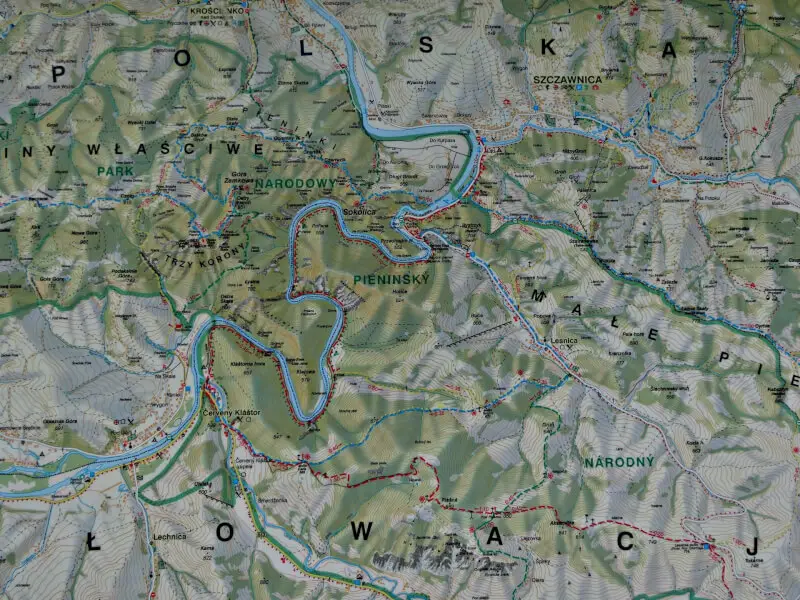
It is also critical that you plan where all your campsites will be, knowing where you will end each day before starting the trip. Double check to see if you need permits or cash to camp in these areas. Also, plan back-up campsites so that you are prepared if your pace ends up being slower or faster than expected.
Finally, make sure you understand the terrain you will be covering. Hiking 12 miles over flat ground is a completely different experience than covering the same distance over rolling hills or with steep elevation gain. The topography will absolutely effect how fast you can clock miles. You should also be aware of the surrounding terrain and trails. This is crucial in the case of an emergency, when knowing where other trails bisect the one you are on may allow you a quicker way home.
Pack Light
Being alone means that you will be responsible for carrying everything that you bring with you. If you are doing a backcountry trip, it will all be on your back. Minimizing weight through strategic packing can have a large effect on how quickly you move across the terrain, and is critical to success. Planning simple meals, wearing the same clothes a few days in a row, bringing the bare basics in terms of cookware, and opting for water purification tablets as opposed to a bulky filter and a hammock, as opposed to a tent, are all ways to cut down on weight.
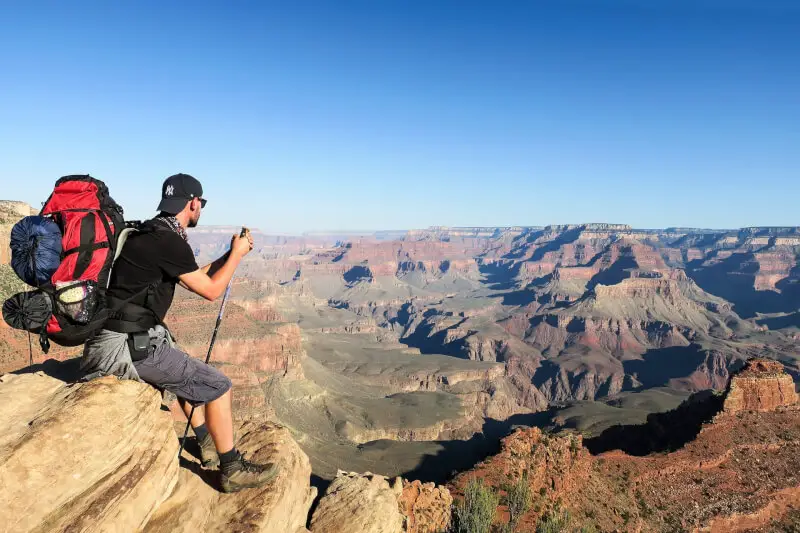
Solo car campers will also fair better if they pack light, even though they don’t have to carry their everything on their back. Still, they are responsible for setting up the entire camp, and less gear to deal with means more time to spend enjoying being where you are.
Give Someone Your Itinerary
When solo camping, always let someone know where you are going, what you are doing, and when you will be back. Tell this person specific times when you will check in with them so that they can alert the appropriate authorities if something happens to you. If you will be leaving your car, place a note with your critical information in the front seat in an easy to see location. This note should include your name, contact information, an emergency contact, where you were headed, and the date by which you plan to return to your vehicle.
Having a satellite phone or SPOT Personal Locator Beacon is also a good move. These items will convey your GPS coordinates the case of an emergency, even if you are somewhere without satellite phone service.
Bring Entertainment
With no one to talk to in the evenings, bringing along some personal entertainment can greatly enhance the experience of camping alone. A good book, a journal, or a deck of cards are all great options for keeping yourself busy once the sun has set, but before you are ready to head to bed. You could also check our guide on camping during the shoulder season.







